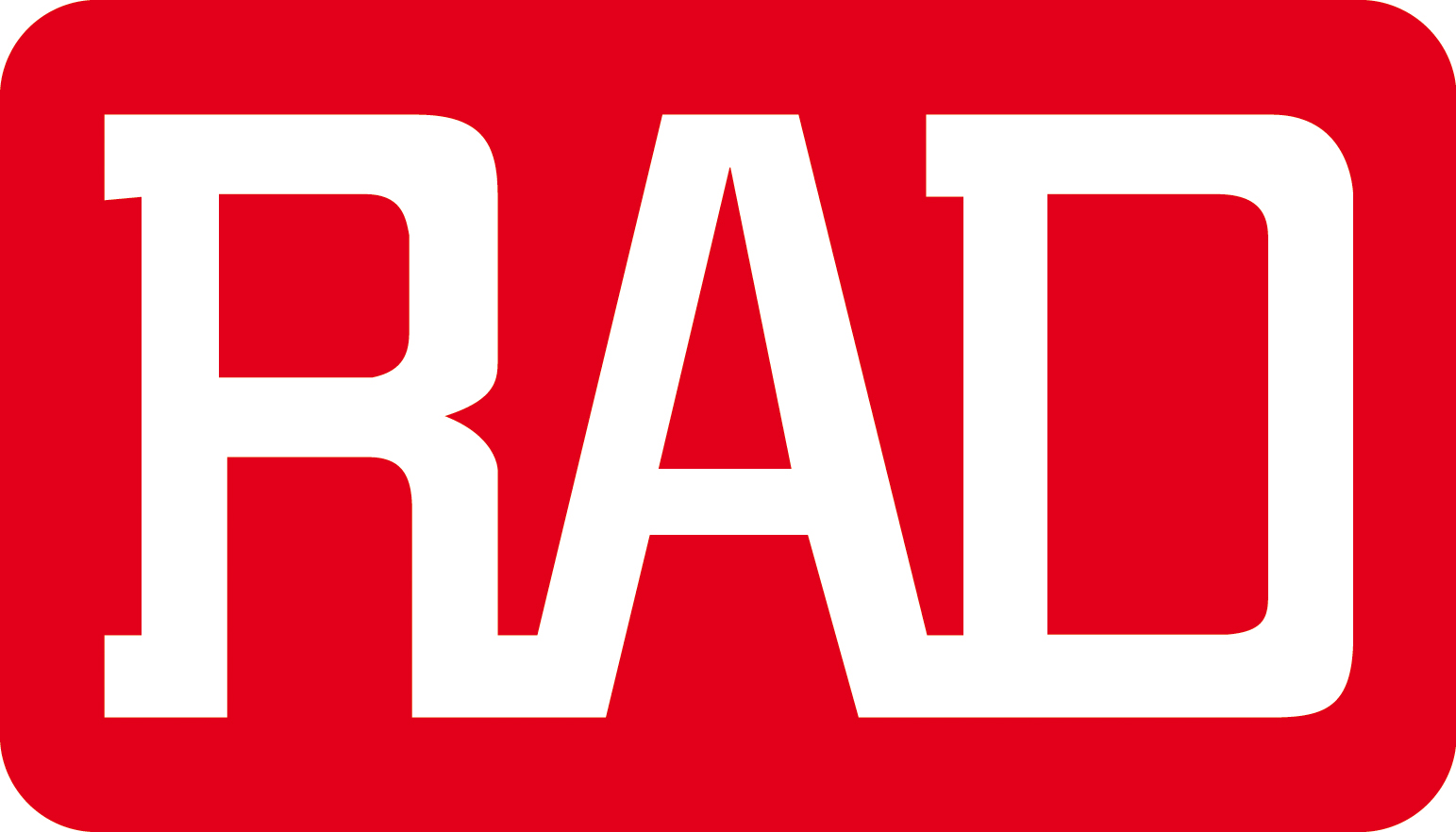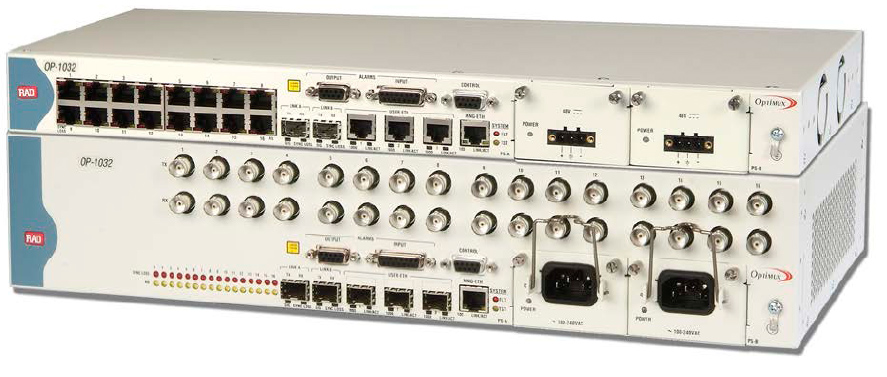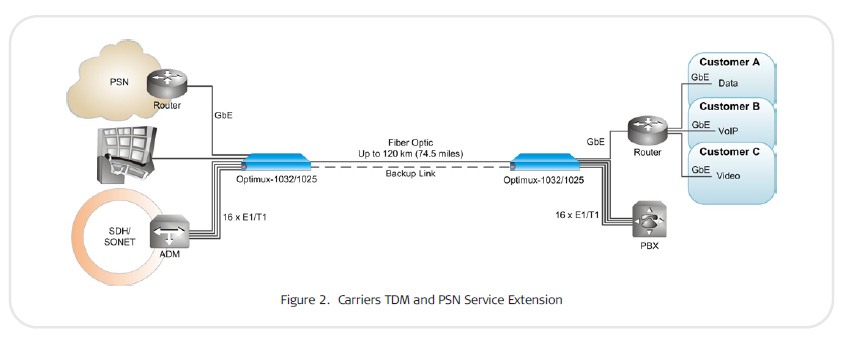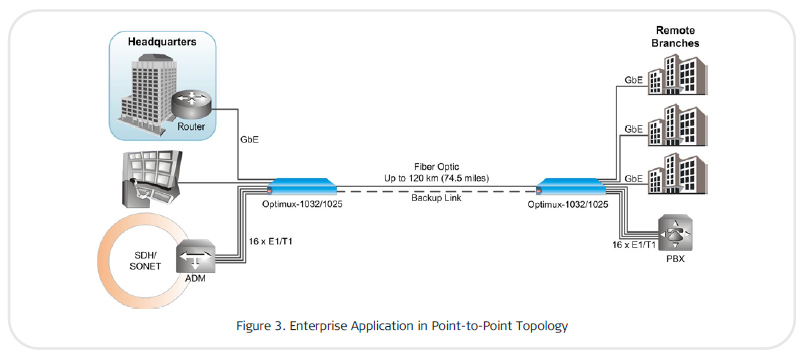




Optimux-1032 (OP-1032) Fiber Optic Multiplexer for 16 E1s and Gigabit
Ethernet
Optimux-1032 ( OP-1032 ) Fiber Optic Multiplexer for 16 E1s and Gigabit Ethernet
The Optimux product line is part of RADs Axcess+ portfolio for Multiservice Access
Platform and First Mile solutions. The portfolio combines extensive support for legacy services with future-proof Ethernet
capabilities to address the challenges faced by utilities, transportation networks,
carriers, and mobile operators in migrating to next-generation networks and services
with flexibility, efficiency and carrier-class reliability.
Optimux-1032 / OP-1032 provides a simple, flexible, and cost-effective point-to-point solution for transporting
combined E1/T1 and Ethernet traffic over a fiber link, to distances of up to 120 km
(74.5 miles).
The single-box solution for TDM and Ethernet offers a pay-as-you-grow model by supporting initial deployments of
partial capacity with license-based upgrades when needed.
OP-1032 aka Optimux-1032 includes two fiber optic uplinks (one main and one backup),
three User Ethernet ports (one activated
by default) and 16 E1 or T1 tributary ports (4 activated by default).

Each product features four licenses:
TDM additional 4, 8 or 12 TDM ports for a total of 16 TDM ports
ETH two additional GbE User ports for a total of three 10/100/1000 interfaces.
TYPICAL APPLICATIONS FOR THE OPTIMUX-1032 ( OP-1032 )
Cellular Backhauling
Figure 1 demonstrates a mobile backhauling application where 2G/3G and WiMax services are transmitted
transparently from rural locations to a central site over fiber. In such applications
Optimux acts as a fiber extension reaching up to 120 km, eliminating the need for
massive fiber deployments to rural areas.

Service Extension
Optimux-1032 ( OP-1032 )provides a solution to carriers and service providers, employing
both TDM and PSN infrastructures and wishing to extend services in a single chassis solution. A carrier point-to-point
application is shown in Figure 2.

Multiservice Sharing
Inter-branch connectivity for multiservice sharing of voice and data for university
campuses, health care organizations, financial institutions, government offices can
be established with Optimux-1032.
Such an enterprise application is shown in Figure 3.

OPTIMUX-1032 UPLINK INTERFACES
Optimux-1032 aka OP-1032 features a 1000 Mbps fiber optic uplink with bandwidth shared between Ethernet
traffic and up to 16 TDM channels. Various interfaces (based on SFP transceivers) are available for both the
active and the backup uplinks (see Table 1 and Ordering):
850 nm short haul VCSEL over multimode fiber for very short range applications
1310 nm short or long-haul laser and 1550 nm long-haul laser interfaces for extended range over single-mode fiber
Single-fiber interface using WDM technology with a different wavelength of receive and transmit
signals (1310 nm and 1490 nm, 1490 nm and 1570 nm).
OP-1032 LINK PROTECTION
Upon link failure, the unit
automatically switches to an optional
second uplink as a backup.
Optimux-1032/1025 supports revertive
and non-revertive protection modes.
E1 INTERFACES
Optimux-1032 multiplexes 16 E1 channels. The E1 interfaces comply with the ITU-T G.823
comply with the ITU-T G.824 for jitter
requirements. Line coding is HDB3 for E1. A pair of LEDs monitors loss-of-signal and AIS on each
E1 receive line. By default, 4 TDM
interfaces are activated, the remaining 12 ports can be activated via a software
key.
ETHERNET USER INTERFACES
Optimux-1032 features 10/100/1000 Ethernet ports enabling up to 1000-Mbps Ethernet connection. It can be supplied
with one or three 10/100/1000BaseT copper or 1000BaseX Fiber Ethernet ports with SerDes interface. When three ports
are ordered, only one of them is activated by default. The second and third ports are
activated via a software key. The USER-ETH interfaces comply with the
ITU-T G.802.3 requirements. TIMING
The Optimux-1032 devices transmit each E1 channel separately so that the clock of
each E1 channel is independent. The
devices support internal timing mode, which means that the uplink transmit clock
is sourced from internal local oscillator.
DIAGNOSTICS
Optimux features comprehensive test and diagnostic capabilities that include local
and remote loopbacks on each E1 port.
On the fiber optic interfaces the Optimux supports digital diagnostic monitoring
(DDM) functions according to the SFF-8472 standard. This feature enables the end user to monitor real-time
parameters of the SFP, such as optical output and input power, temperature, laser bias current, and transceiver supply
voltage. To ease system diagnostics, Optimux-1032 ( OP-1032 ) features LED status indicators and AIS
alarm generation and recognition. The devices also feature an optional output alarm port with dry relay contacts for
major and minor alarms and an input alarm port that supports up to 4 input alarms.
MANAGEMENT
Optimux-1032 / OP-1032 can be managed using the following tools:
Local RS-232 terminal
Telnet server
RADview-EMS.
Optimux features RADs Command Line Interface (CLI) and RADview-EMS to ease configuration and management.
In addition, the product incorporates security features including Secure Shell (SSH), SNMPv3 and RADIUS.
PHYSICAL
Optimux-1032 is available in:
1U-high enclosure with balanced E1 interface and RJ-45 connectors
2U-high enclosure with unbalanced E1 interface and BNC or IEC-169/13 connectors.
All the units can be mounted in a 19-inch, ETSI or 23-inch racks.
EXTENDED TEMPERATURE
An extended temperature option is available supporting a temperature range of -20° to 65°C (-4° to 149°F). This
option is equipped with additional fans and must be used with H SFP versions only.
POWER
The units can be ordered with an AC power source (90 to 260 VAC), a DC power source (-40 to -72 VDC) or a
wide-range power source (90 to 260 VAC and 40 to 375 VDC). The wide-range power source is available only with
ordering options featuring a single
USER-ETH interface (1NULL or 1UTP). A second power supply can be ordered for power redundancy.
A product data sheet for the Optimux-1032
OP-1032 (pdf)